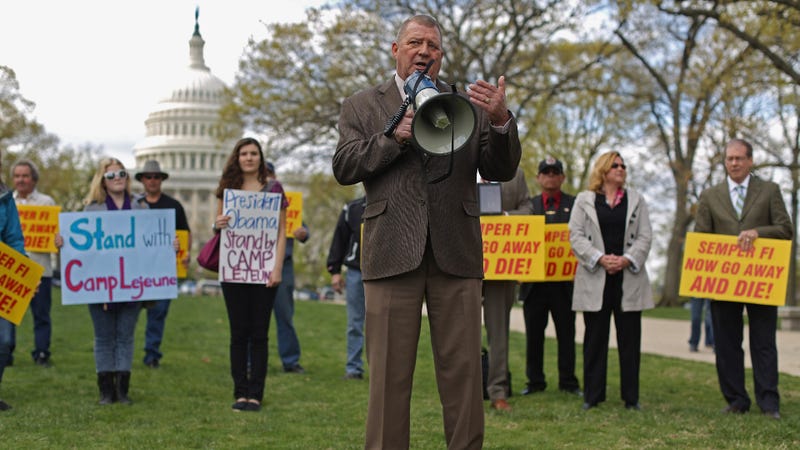
A study published Monday in the Journal of the American Medical Association found that veterans exposed to contaminated drinking water while living at Marine Corps Base Camp Lejeune decades ago are 70 percent more likely to develop Parkinson’s disease.
Researchers examined the health records of 340,000 servicemembers who were stationed at the base from 1975 through 1985 and compared that to data from Camp Pendleton in California. A follow-up comparison of the same group of veterans that examined their health records from Jan. 1, 1997 to Feb. 17, 2021, found the risk of Parkinson’s disease was 70% higher in veterans who were stationed at Camp Lejeune than in those stationed at Camp Pendleton.
Drinking water at the base in North Carolina was contaminated with TCE, a known human carcinogen as well as tetrachloroethylene (PCE), a likely human carcinogen and several from 1953 until 1987, when testing required by the Safe Drinking Water Act uncovered the polluted wells.
“Wells that provided water to the base during this period were contaminated by on-base sources, including leaking underground storage tanks, industrial spills, and waste disposal sites (largely TCE) and an off-base dry cleaning business (largely PCE),” the study reads.
The study itself was funded by the U.S. Department of Veterans Affairs and researchers noted that exposure to the chemicals could be variable based on where people lived or worked on the base and how much water they drank. It is also based on the claims data of a veteran who was treated by a doctor through VA or Medicare.
In a statement, VA encouraged all veterans who served for at least 30 days total at Camp Lejeune between Aug 1, 1953 and Dec. 31, 1987 and their family members to apply for the care and benefits here.
“Parkinson’s disease is a presumptive condition for veterans who were exposed to the contaminated water at Camp Lejeune,” the statement continus. “This means that when eligible veterans apply for benefits, they do not need to prove that their service caused their Parkinson’s disease; instead, VA automatically assumes service-connection for these Veterans and provides benefits accordingly.”
Numerous lawsuits have been filed against the government for the hazardous conditions found at Camp Lejeune. The PACT Act also allows veterans and their families to file lawsuits for harm caused by exposure to contaminated water at Camp Lejeune. More information can be found here.
Reach Julia LeDoux at Julia@connectingvets.com.


